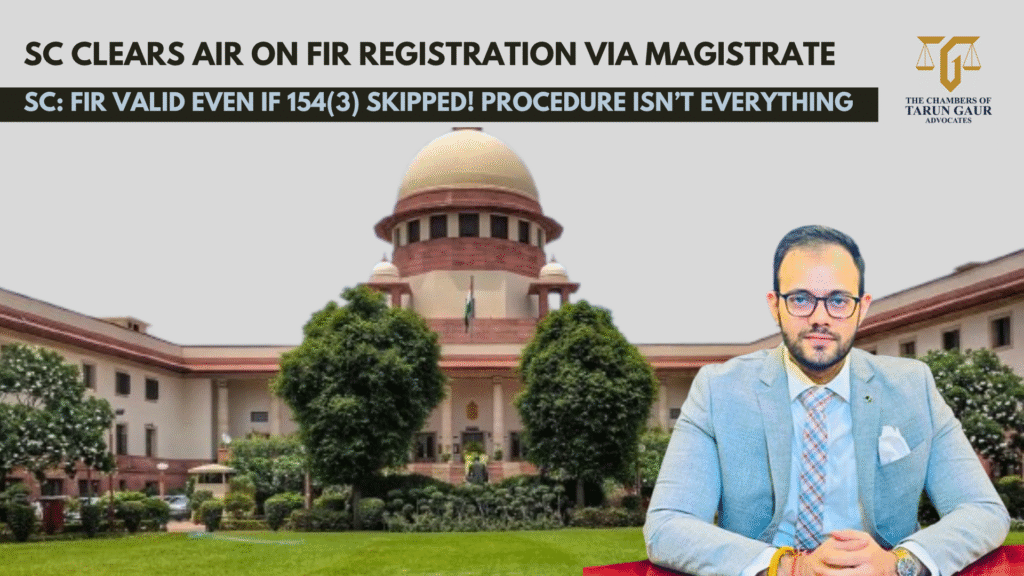In a much-needed clarification, the Hon’ble Supreme Court in Anurag Bhatnagar v. State (NCT of Delhi) upheld the validity of a magistrate’s direction to register an FIR under Section 156(3) CrPC, despite the complainant not approaching the police hierarchy as per Section 154(3).
⚖️ The Court’s Core Finding:
The Bench of Justices Pankaj Mithal and SVN Bhatti held that while ordinarily a complainant should first seek remedy under Section 154(3) (i.e., approach higher police officials), the magistrate’s power to act under 156(3) remains intact if:
-
The complaint discloses a cognizable offence, and
-
The magistrate has applied his mind before ordering investigation.
🔍 Procedural Irregularity ≠ Jurisdictional Illegality
The Court held:
“The Magistrate’s order may be irregular but is not without jurisdiction… The procedural lapse does not render the order void.”
It reiterated that such procedural deviations cause no prejudice to the accused, and should not curtail an individual’s right to initiate criminal proceedings when serious allegations exist.
💬 Advocate Tarun Gaur’s Perspective:
This judgment is a powerful reaffirmation of access to justice in criminal law. The object of Section 156(3) is to allow the criminal justice machinery to be activated in cases where police inaction or delay may defeat the purpose of prosecution. Imposing excessive procedural preconditions could create unnecessary hurdles for genuine complainants.
Criminal law is not about formality, but functionality. Procedural safeguards must never become tools to silence allegations before they are even examined.
Yes, it is ideal to follow the Section 154(3) route, but denying a 156(3) remedy solely due to this omission — despite a serious cognizable offence being made out — would be a grave injustice.
Need help filing or defending criminal complaints under CrPC? Reach out to Advocate Tarun Gaur — Best Advocate in Dwarka, practising before the Delhi High Court with proven expertise in pre-FIR remedies, procedural justice, and constitutional criminal law.

